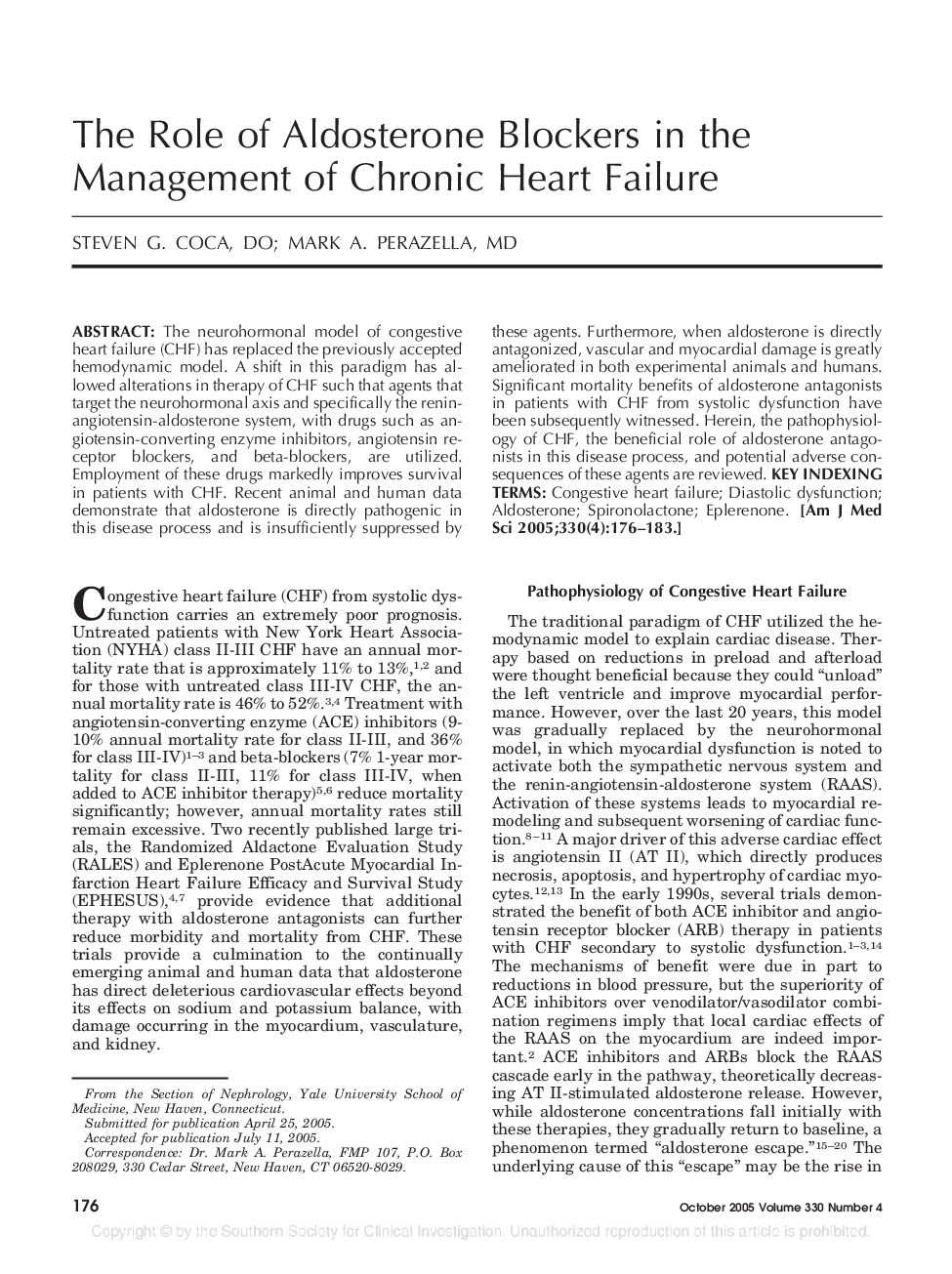| Article ID | Journal | Published Year | Pages | File Type |
|---|---|---|---|---|
| 9942449 | The American Journal of the Medical Sciences | 2005 | 8 Pages |
Abstract
The neurohormonal model of congestive heart failure (CHF) has replaced the previously accepted hemodynamic model. A shift in this paradigm has allowed alterations in therapy of CHF such that agents that target the neurohormonal axis and specifically the reninangiotensin-aldosterone system, with drugs such as angiotensin-converting enzyme inhibitors, angiotensin receptor blockers, and beta-blockers, are utilized. Employment of these drugs markedly improves survival in patients with CHF. Recent animal and human data demonstrate that aldosterone is directly pathogenic in this disease process and is insufficiently suppressed by these agents. Furthermore, when aldosterone is directly antagonized, vascular and myocardial damage is greatly ameliorated in both experimental animals and humans. Significant mortality benefits of aldosterone antagonists in patients with CHF from systolic dysfunction have been subsequently witnessed. Herein, the pathophysiology of CHF, the beneficial role of aldosterone antagonists in this disease process, and potential adverse consequences of these agents are reviewed.
Related Topics
Health Sciences
Medicine and Dentistry
Cardiology and Cardiovascular Medicine
Authors
Steven G. DO, Mark A. MD,
